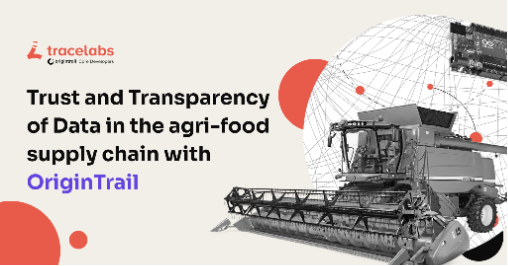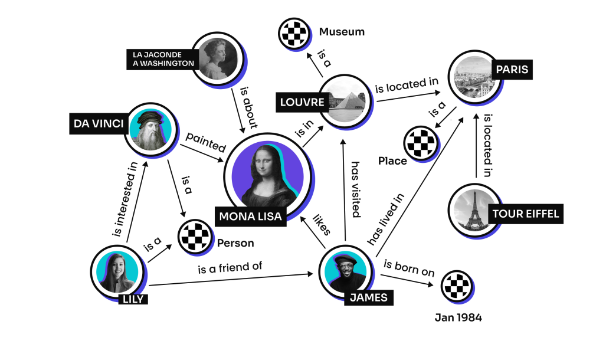
This article is written by Trace Labs – Core developers of the OriginTrail Decentralized Knowledge Graph
The increasing complexity of global supply chains, process optimization, strict legislation, growing customer awareness, and demand for food transparency all encouraged the involvement of advanced technologies for greater transparency of agri-food sector supply chains. This includes, among other things, collecting, recording, and exchanging data.
Scattered information, non-standardized interpretation, intransparent controls, and deliberate manipulation can lead to compromised food safety. According to the UN Development Programme, food fraud results in damages of up to $40 billion annually. It is therefore of great importance to ensure greater transparency of food supply chains and ensure that consumers have access to reliable information about the production process and the quality of the product.
Providing insights into the entire supply chain process is a global issue. Lack of supply chain data integration limits transparency when it comes to production, processing, distribution, warehousing, and retailing. Transparency faces several challenges including identifying data, structuring data into interoperable, standards-based formats, linking relevant data, and ensuring data integrity.
OriginTrail Decentralized Knowledge Graph (DKG) helps establish mutual trust and transparency amongst all stakeholders in the supply chain and ensure the integrity and consistency of data in the value chain. OriginTrail technology, which helps achieve the traceability of products, uses a powerful combination of knowledge-graphs and blockchains, enabling greater data integrity and transparency in food supply chains. It enables various supply chain participants to unlock the value of data in existing IT systems by turning them into discoverable, verifiable, and interoperable assets (e.g. products, certificates, supply chain events, etc.) on DKG that can be used by various business applications for traceability, credential verification, and others. As all these assets are interoperable using global data standards like GS1 EPCIS and W3C Verifiable Credentials, they can also be used by legacy IT systems.
As part of the DEMETER project, Trace Labs (OriginTrail Core Developers) contributes to reshaping and building a more interoperable, data-driven, innovative, and sustainable European agri-food sector. OriginTrail DKG is deployed to enable trusted product passports for food products in poultry and wine supply chains and is supporting data interoperability on the DEMETER platform, which is the key to enabling traceability in agrifood supply chains. This is done by enabling multiple supply chain participants in the agri-food industry to create discoverable, verifiable, and interoperable assets that contain crucial knowledge on food products (e.g. supply chain events, IoT readings) on the DKG.

OriginTrail Decentralized Knowledge Graph
With technological developments in the agriculture sector, there is a persisting concern related to the security of sensitive data. This delicate problem is present both in manual data entry and in precision agriculture, which collects a large amount of data using advanced technology tools like sensors, drones, and automated feeding systems. The importance of keeping farmers’ and producers’ sensitive data secure is significant. Both, manual data entry and collecting data with digital technologies raise many privacy risks, which involve unauthorized access and misuse of data. OriginTrail DKG combines the data integrity of public infrastructure while maintaining strict data access controls. Supply chain stakeholders can precisely define who can have access to the assets they own. Taking it a step further, asset owners can make their assets discoverable, but only accessible in exchange for payment. This is the data marketplace mechanism supported by OriginTrail DKG, contributing to a more equitable distribution of gains in agri-food supply chains.
Blockchain is here to stay, and it will go beyond food traceability. According to the Food and Agriculture Organization of the UN, blockchain technology has a lot of potential to support effective climate policy in the agriculture sectors and to measure the effectiveness of climate action.
With a world population reaching over 8 billion in 2022 and agriculture being the main source of income for the world’s poorest population in rural areas, there is an increasingly strong need to transform the agri-food systems. This article did not go into depth about unfair compensation or climate-dependent production in those areas, however, it can be indirectly and significantly improved through advanced technologies.
The agri-food sector is an immersive field that encompasses several issues from societal, health, environmental and economic perspectives. Blockchain-based technology such as OriginTrail will continue to play an important role in data transparency and traceability and will help to combat those issues to facilitate trust among stakeholders.


